Open Marine Insurance Policy
- beemawala.com
- Open Marine Insurance Policy
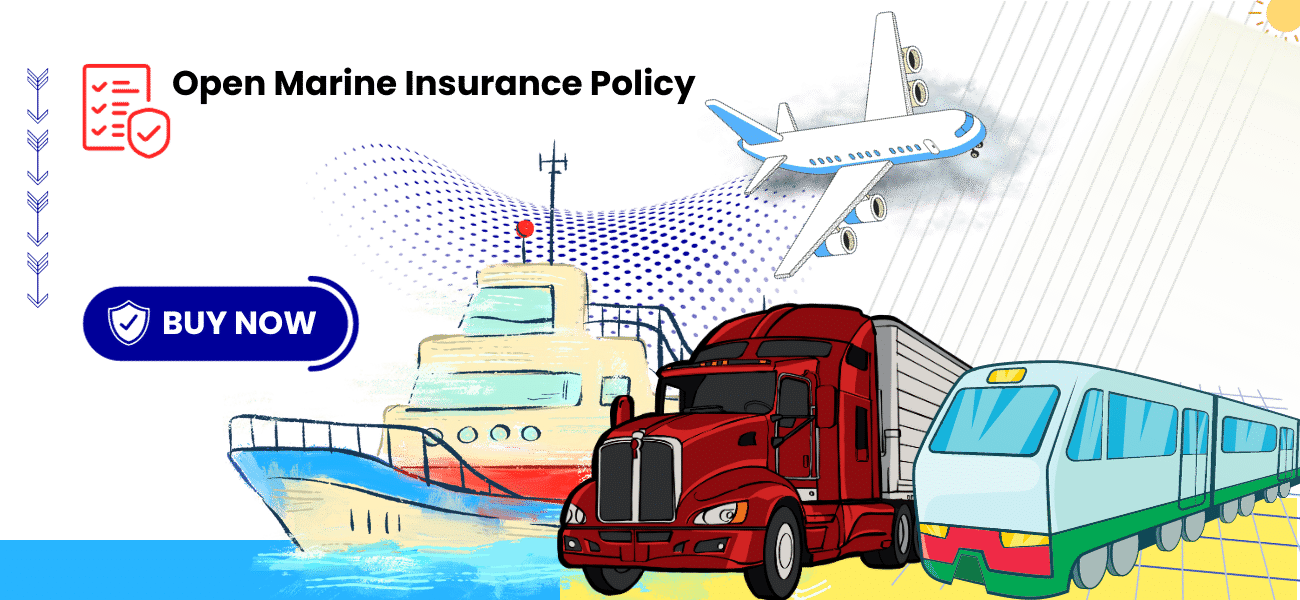
Total Cover
100% Claim Settlement
No
Documentation
Reasonable
Premium
Total Cover
100% Claim Settlement
No
Documentation
Reasonable
Premium
Our Proud Partners - Beemawala












Client Testimonials
Open Marine Insurance: Buy/Renew Marine Insurance Policy Online Instantly
What is Open Marine Insurance Policy
✓ The Open Marine Insurance Policy is a comprehensive insurance policy that provides coverage 24/7, 365 days a year for medium and small owner businesses in India. It includes coverage for marine transportation as well as other modes of transport such as rail, road, and air. Businesses engaged in importing, exporting, or transporting goods through various transportation methods are protected by this policy. Coverage is offered for risks associated with different modes of transport, ensuring that businesses are financially protected from potential damage, loss, accidents, or other perils that may occur during their operations. With this policy, businesses can have peace of mind, regardless of the transportation mode utilized, as they will be covered.
⛦ EXAMPLE: Suppose Mayank, an iron trader, has a shipment of iron worth 40 lakh rupees. Unfortunately, during transportation, an accident occurs, resulting in a total loss of the shipment. In this case, Mayank, being covered by the Open Marine Insurance Policy, can file a claim for the total claim amount, which is 40 lakh rupees, with only a 0.5% deduction for GST. This means that Mayank will receive the majority of the claim amount, ensuring that he can recover the financial loss incurred due to the accident.
What Does Our Open Marine Insurance Policy Cover?"
- It cover the good in transit round the clock 24*7 , 365 days .
- The policy applies to goods transported via sea, air, road, or rail.

Accidents

Theft

Natural Disasters
Damage caused by natural disasters such as storms, floods, or earthquakes.

Fire Incident
Losses resulting from fire incidents during transit.

General Expenses Cover
Compensation for expenses incurred due to vessel detention or quarantine.

Liability Cover
Protection against liabilities arising from collisions, contact with other vessels, or property damage.
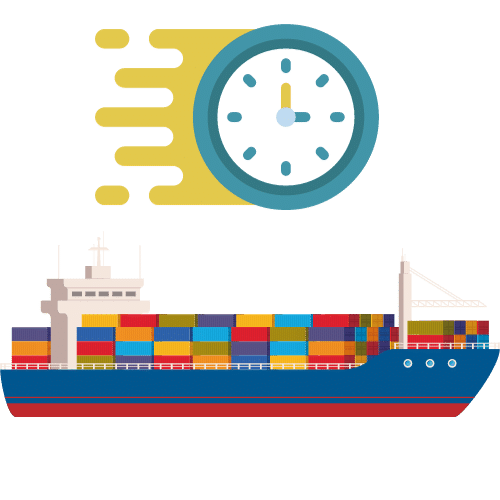
Delay in Transit Cover
Coverage for delays in transit leading to financial losses.

Quarantine Compensation
Compensation for expenses incurred due to vessel detention or quarantine.

Temperature Sense
Coverage for deterioration or spoilage of perishable goods.

Riots , War, Civil War etc

Business Financial Safety
Additional Add-ons Under the Open Marine Insurance Policy
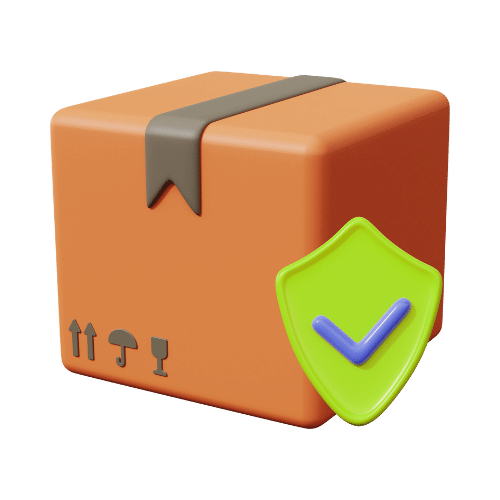
Extended Warehouse Coverage
Extends coverage to include storage at warehouses or storage facilities during transit or before final delivery.

Strikes, Riots, and Civil Commotions (SRCC) Coverage
Protects against losses or damages caused by strikes, riots, or civil commotions during transit.

War and Terrorism Coverage
Provides coverage for losses or damages resulting from acts of war, terrorism, or political violence.

Temperature-controlled Cargo Coverage
Offers protection for perishable goods that require temperature-controlled transportation, covering losses caused by temperature deviations or equipment failures.

Exhibition or Trade Show Coverage
Extends coverage to goods displayed or exhibited at trade shows, exhibitions, or fairs.

Customized Coverage
Tailors the policy to meet specific needs and requirements of the insured, providing additional coverage for unique or specialized goods or circumstances.

Valuable Papers and Documents Coverage
This add-on ensures the safety of important business documents during transit, covering the loss or damage of these valuable papers, offering financial security and minimizing disruptions to your operations.

Loading and Unloading Clause
The loading and unloading clause provides coverage for any damages that occur while goods are being loaded onto or unloaded from the transport vehicle, protecting against potential losses during these critical stages.

ODC (Over Dimensional Cargo) Clause
The ODC clause offers specialized coverage specifically for transporting large or oversized cargo, ensuring protection for these unique shipments and addressing any potential risks associated with their transportation.
How to Settle an Open Marine Insurance Claim?

Notification
Promptly inform the insurance company about the loss or damage during transit.

Documentation
Submit necessary documents, including policy copy, detailed statement, shipping documents, proof of value, and relevant evidence.

Detailed sales and purchase proofs
Documents demonstrate your financial transactions from the policy start date to claim intimate date .

Claim Form
Complete and submit the provided claim form with essential information.

Additional KYC Documents
Include copies of identification documents (such as Aadhaar card, PAN card) and a self-declaration letter of ownership.

Verification
The insurance company assesses the claim, conducts investigations if needed, and appoints a surveyor for assessment.

Additional Supporting Documents
Provide a cancelled cheque image, subrogation letter (if applicable), and discharge voucher.
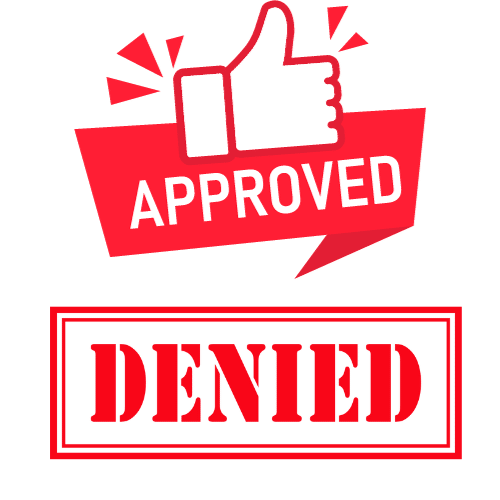
Settlement Decision
The insurance company determines the eligible amount and communicates the decision to the insured.
Exclusions of Single Transit Marine Insurance Policy

Losses due to willful misconduct
The policy does not cover losses resulting from intentional acts or negligence on the part of the insured.
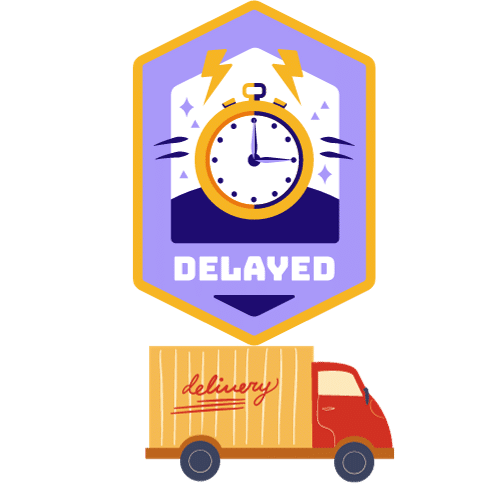
Delay-related losses
Delay in transit without any physical loss or damage is not covered by the policy.

Inherent vice or nature of goods
Losses arising from the natural characteristics or inherent vice of the insured goods are excluded.

Insufficient or improper packaging
Losses due to inadequate or improper packaging of the cargo are not covered.

Unseaworthiness of vessel
Losses caused by the unseaworthiness of the vessel or lack of proper maintenance are excluded.

Nuclear or war-related risks
Losses resulting from nuclear incidents, war, civil war, or political unrest are not covered.

Confiscation or detention by customs
Losses arising from confiscation or detention of goods by customs authorities are excluded.

Losses covered under separate policies
Losses that are already covered by other insurance policies are not included in this policy.
Documents Required for Claim Settlement under Open Marine Insurance Policy

Aadhaar Card
Copy of the insured party’s Aadhaar card for identification purposes.
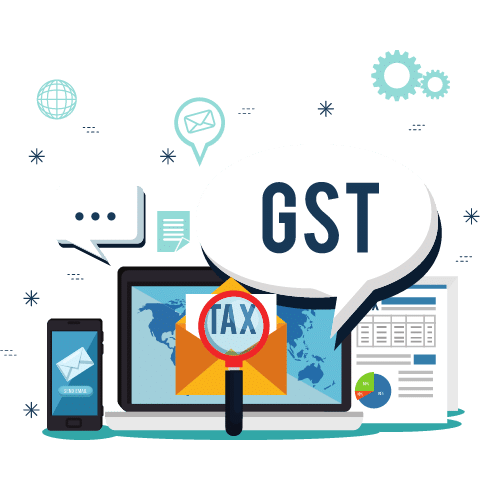
GST Registration Certificate
If applicable, provide a copy of the Goods and Services Tax (GST) registration certificate.

PAN Card
Copy of the insured party’s Permanent Account Number (PAN) card for taxation purposes.

E-way Bill
Submit a copy of the E-way bill, a document required for the movement of goods in compliance with GST regulations.

Invoice Copy
Include a copy of the original bill or invoice for the insured goods.

Bilti / Consignment Note
If applicable, provide a copy of the Bilit, which is a transportation document used in some regions.

LR Copy
Include a copy of the Lorry Receipt (LR) or any other relevant transportation document.

Transporter Letter
If the goods were being transported by a third-party transporter, a letter from the transporter confirming the loss or damage is required.

Monetary Claim Letter
Submit a letter requesting the settlement of the claim, stating the amount of the claim sought.
Contact Information for Claim Settlement: Open Marine Insurance Policy

If Policy Obtained through Agent/Broker
Claims are the reason we get a car insurance in the first place! Therefore, ensure the claim process of your desired car insurance is smooth and doesn’t take too long. When you’re in trouble, the last thing you want is, to spend all your time and energy in just filing a claim!

If Policy Obtained Directly from Insurance Company
Claim Settlements are basically getting your compensations done right. Claims being such an important part of a car insurance, check for your desired insurer’s claim settlement ratio so that you’re assured that no matter what, your claims will be settled!

Claim Contact Information for Policy from Beemawala.com
If you have taken the policy from Beemawala.com, please use the following contact details to register your claim.
- Phone: +91-9654259715
- Email: services@beemawala.com
Frequently Asked Questions: Open Marine Insurance Policy
Marine insurance refers to an insurance policy that offers protection against losses or damages that may occur during marine activities, including the transportation of goods or vessels.
A marine insurance policy is a contractual agreement between the insured and the insurer, providing coverage for risks associated with marine activities, such as loss or damage to cargo, vessels, or liabilities.
Land-based properties or risks are generally not considered the subject matter of marine insurance. Marine insurance primarily focuses on risks related to marine activities.
Inland marine insurance provides coverage for goods, equipment, or materials while in transit over land or being stored temporarily. It covers risks beyond the scope of traditional property insurance.
Marine cargo insurance protects against loss or damage to goods being transported by sea, air, or land. It provides coverage for the cargo during transportation, including loading and unloading.
Marine insurance refers to the insurance coverage provided for risks associated with marine activities, including the transportation of goods, vessels, and marine-related liabilities.
The main types of marine insurance include marine cargo insurance, marine hull insurance, marine liability insurance, and marine protection and indemnity insurance (P&I).
Constructive total loss in marine insurance refers to a situation where the cost of repairing or recovering a damaged or lost property exceeds its insured value. It is treated as a total loss for insurance purposes.
Marine insurance is a form of insurance that covers risks associated with marine activities. Its types include marine cargo insurance, marine hull insurance, and marine liability insurance.
Insurable interest in marine insurance refers to the financial or pecuniary interest a person has in the subject matter of the insurance policy, such as cargo, vessel, or liability, to protect against potential losses.
Marine insurance refers to insurance coverage that protects against risks related to marine activities, including the transportation of goods, vessels, and marine liabilities.
The general average in marine insurance is a principle where, in the event of a sacrifice or expenditure made to save the entire vessel or cargo, the loss is proportionately shared among all parties involved.
A floating policy in marine insurance is a type of policy that covers multiple shipments or vessels under a single policy, typically used for frequent or continuous marine-related activities.
Risks covered under a marine insurance policy include damage or loss of cargo, accidents during transportation, natural disasters, fire incidents, liabilities, delays, and other related risks.
Marine insurance is insurance coverage that protects against risks associated with marine activities, such as the transportation of goods, vessels, and marine liabilities.
Marine insurance refers to insurance coverage specifically designed to protect against risks related to marine activities, including the transportation of goods, vessels, and marine liabilities.
Marine hull insurance provides coverage for the physical loss or damage to vessels, including the hull, machinery, equipment, and associated liabilities.
Marine hull insurance provides coverage to vessels, including the furniture and articles on board, against risks of damage, loss, or associated liabilities.
मरीन बीमा वह बीमा पॉलिसी होती है जो मरीन गतिविधियों, जैसे माल के परिवहन, जहाजों, और मरीन संबंधित दायित्वों के संबंध में उठने वाले जोखिमों के खिलाफ सुरक्षा प्रदान करती है।
The general average loss in marine insurance refers to the collective loss or expenditure incurred to safeguard the entire vessel or cargo during a marine adventure, shared proportionately among all parties involved.
The Marine Insurance Act was established in the United Kingdom in 1906 and has served as the basis for marine insurance laws in various countries, including India.
Marine insurance covers various risks related to marine activities, including damage or loss of cargo, accidents during transportation, natural disasters, fire incidents, liabilities, delays, and more.
The Marine Insurance Act was passed in the United Kingdom in 1906 to regulate marine insurance contracts and provide guidelines for marine insurers and policyholders.
Marine cargo insurance covers loss or damage to goods during transportation by sea, air, or land. It provides coverage against various perils, such as theft, fire, accidents, and natural disasters.
Marine cargo insurance is a type of insurance that provides coverage for goods being transported by sea, air, or land. It protects against loss or damage to the cargo during the transit process.
The sue and labour clause in marine insurance allows the insured party to take necessary and reasonable measures to prevent or minimize further loss or damage to the insured property or cargo. The insurer typically reimburses the expenses incurred.
Inland marine insurance provides coverage for goods, equipment, or materials while in transit over land or being stored temporarily. It covers risks beyond the scope of traditional property insurance, which typically focuses on stationary assets.
The different types of marine insurance include marine cargo insurance, marine hull insurance, marine liability insurance, and marine protection and indemnity (P&I) insurance.
Total loss in marine insurance refers to a situation where the insured property or cargo is entirely lost or damaged beyond repair, resulting in a complete loss of value or utility.
Marine insurance refers to insurance coverage designed to protect against risks related to marine activities, such as the transportation of goods, vessels, and marine liabilities.
The principles of marine insurance include utmost good faith, insurable interest, indemnity, proximate cause, subrogation, contribution, and abandonment.
There are several types of marine insurance, including marine cargo insurance, marine hull insurance, marine liability insurance, and marine protection and indemnity (P&I) insurance, among others.
The marine insurance policy that requires precise accuracy regarding the time and destination of the insured voyage is known as a voyage policy.
The types of marine insurance policies include open marine insurance policy, voyage policy, time policy, mixed policy, and floating policy, among others.
To get marine insurance, you can approach insurance providers, brokers, or agents specializing in marine insurance. They will guide you through the process and assist in selecting the appropriate policy.
Marine insurance is a topic covered in class 11 commerce studies, particularly in subjects like Business Studies or Economics, to introduce students to the basics of marine insurance and its significance in trade.
A marine insurance policy covers various risks associated with marine activities, including loss or damage to cargo, accidents during transportation, natural disasters, fire incidents, liabilities, delays, and other related risks.
Particular average in marine insurance refers to a partial loss or damage to the insured property or cargo caused by a specific, fortuitous event, such as collision, rough weather, or theft.
Marine insurance works by providing coverage for risks associated with marine activities. In exchange for a premium, the insurer assumes the risk and agrees to compensate the insured for any covered loss or damage.
Marine insurance covers various risks related to marine activities, including loss or damage to cargo, accidents during transportation, natural disasters, fire incidents, liabilities, delays, and other related risks.
Actual total loss in marine insurance refers to a situation where the insured property or cargo is entirely lost, destroyed, or damaged beyond recovery, resulting in a complete loss of value or utility.
Marine insurance is important as it provides financial protection against the risks associated with marine activities, ensuring that individuals and businesses can navigate the uncertainties of maritime trade and transportation with confidence.
An open policy in marine insurance is a type of policy that offers coverage for multiple shipments or voyages within a specified period. It provides flexibility for businesses engaged in regular or frequent marine activities.
The calculation of marine insurance premiums involves various factors, such as the nature of goods, their value, mode of transportation, coverage amount, risk factors, and the insurer’s premium calculation method. Consult with an insurance provider or broker for an accurate premium calculation.
The cost of marine insurance depends on factors like the nature of goods, their value, mode of transportation, coverage amount, risk factors, and the insurer’s premium rates. It is best to request quotes from insurance providers for an accurate cost assessment.
Jettison in marine insurance refers to the act of intentionally throwing cargo or goods overboard from a vessel to prevent the entire ship or other cargo from being endangered. It is a measure taken to safeguard the vessel and other valuable cargo.
Here is a list of 50 popular commodities in India where Open Marine Insurance is commonly used:
- Crude oil – Single Transit Marine Insurance
- Petroleum products – Single Transit Marine Insurance
- Natural gas – Single Transit Marine Insurance
- Coal Single Transit Marine Insurance
- Iron ore – Single Transit Marine Insurance
- Steel – Single Transit Marine Insurance
- Aluminum – Single Transit Marine Insurance
- Copper Single Transit Marine Insurance
- Zinc Single Transit Marine Insurance
- Lead – Single Transit Marine Insurance
- Nickel – Single Transit Marine Insurance
- Gold Single Transit Marine Insurance
- Silver Single Transit Marine Insurance
- Platinum – Single Transit Marine Insurance
- Diamonds – Single Transit Marine Insurance
- Cement Single Transit Marine Insurance
- Fertilizers – Single Transit Marine Insurance
- Chemicals – Single Transit Marine Insurance
- Pharmaceuticals – Single Transit Marine Insurance
- Textiles – Single Transit Marine Insurance
- Garments – Single Transit Marine Insurance
- Leather goods – Single Transit Marine Insurance
- Footwear – Single Transit Marine Insurance
- Electronics – Single Transit Marine Insurance
- Automobiles – Single Transit Marine Insurance
- Auto components Single Transit Marine Insurance
- Machinery – Single Transit Marine Insurance
- . Electrical equipment – Single Transit Marine Insurance
- Plastic products – Single Transit Marine Insurance
- Rubber Single Transit Marine Insurance
- Paper products – Single Transit Marine Insurance
- Agricultural products (wheat, rice, sugar, soybeans) – Single Transit Marine Insurance
- Tea – Single Transit Marine Insurance
- Coffee Single Transit Marine Insurance
- Spices (pepper, cardamom, turmeric, cinnamon) – Single Transit Marine Insurance
- Cocoa Single Transit Marine Insurance
- Cashew nuts – Single Transit Marine Insurance
- Fruits (mangoes, apples, bananas) – Single Transit Marine Insurance
- Vegetables – Single Transit Marine Insurance
- Dairy products – Single Transit Marine Insurance
- Fish and seafood – Single Transit Marine Insurance
- Poultry – Single Transit Marine Insurance
- Meat products – Single Transit Marine Insurance
- Timber – Single Transit Marine Insurance
- Furniture – Single Transit Marine Insurance
- Handicrafts – Single Transit Marine Insurance
- Precious Stones – Single Transit Marine Insurance
- Wool and yarn – Single Transit Marine Insurance
- Glassware – Single Transit Marine Insurance
- Ceramics- Single Transit Marine Insurance
- These commodities represent a wide range of industries and sectors where Open Marine Insurance is commonly utilized to protect the goods during transportation.
Popular Other Marine-related Insurance Options in India
- Click Below for Other Marine-related Insurance Policy











